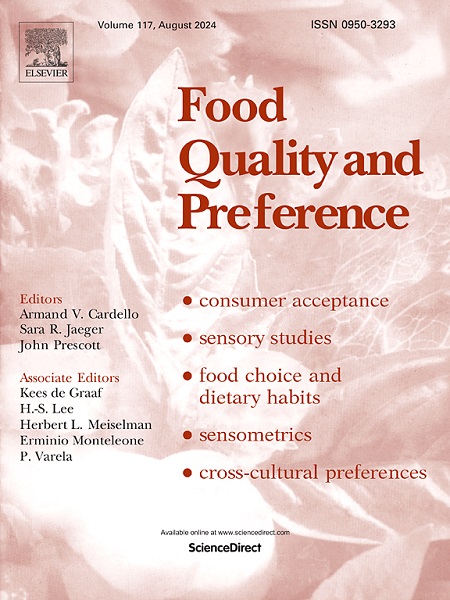户外环境下罐装葡萄酒消费者的跨文化判断
IF 4.9
1区 农林科学
Q1 FOOD SCIENCE & TECHNOLOGY
引用次数: 0
摘要
本研究考察了意大利、瑞士和英国的罐装葡萄酒消费者的观念,强调了当地规范和价值观如何影响消费者的态度。随着全球葡萄酒行业面临越来越大的压力,以减轻其对环境的影响,传统的玻璃瓶成为碳排放的重要贡献者。尽管诸如易拉罐等碳效率更高的替代品具有优势,但它们的采用仍然有限。这项研究的结果显示了三个国家消费者观念的鲜明对比:意大利和瑞士的参与者经常将罐装葡萄酒饮用者与负面特征联系在一起,比如不守纪律、不环保、缺乏成熟,这反映了人们对葡萄酒消费的根深蒂固的看法。相比之下,英国受访者对此持更积极的看法,认为这些消费者具有想象力和社交能力等积极特征。这些见解表明,营销人员必须根据地区态度调整策略。在意大利和瑞士,解决偏见,促进罐装葡萄酒的便利性和可持续性是必不可少的,而在英国,努力应该集中在加强已经积极的看法上。了解这些动态对于旨在推广可持续包装选择和鼓励更广泛接受替代格式的葡萄酒营销人员至关重要。本文章由计算机程序翻译,如有差异,请以英文原文为准。
Cross-cultural judgments of canned wine consumers in outdoor settings
This study examines the perceptions of canned wine consumers in Italy, Switzerland, and the United Kingdom, highlighting how local norms and values influence consumer attitudes. As the global wine industry faces increasing pressure to mitigate its environmental impact, traditional glass bottles emerge as significant contributors to carbon emissions. Despite the advantages of more carbon-efficient alternatives, such as cans, their adoption remains limited. The study's findings illustrate stark contrasts in consumer perceptions across the three countries: Italian and Swiss participants often associate canned wine drinkers with negative traits such as being undisciplined, environmentally unfriendly, and lacking sophistication, reflecting entrenched views on wine consumption. In contrast, British respondents hold a more favorable view, attributing positive characteristics such as imagination and sociability to these consumers. These insights suggest that marketers must tailor their strategies to align with regional attitudes. In Italy and Switzerland, addressing biases and promoting the convenience and sustainability of canned wine is essential, whereas in the UK, efforts should focus on reinforcing already positive perceptions. Understanding these dynamics is crucial for wine marketers aiming to promote sustainable packaging options and encourage broader acceptance of alternative formats.
求助全文
通过发布文献求助,成功后即可免费获取论文全文。
去求助
来源期刊

Food Quality and Preference
工程技术-食品科技
CiteScore
10.40
自引率
15.10%
发文量
263
审稿时长
38 days
期刊介绍:
Food Quality and Preference is a journal devoted to sensory, consumer and behavioural research in food and non-food products. It publishes original research, critical reviews, and short communications in sensory and consumer science, and sensometrics. In addition, the journal publishes special invited issues on important timely topics and from relevant conferences. These are aimed at bridging the gap between research and application, bringing together authors and readers in consumer and market research, sensory science, sensometrics and sensory evaluation, nutrition and food choice, as well as food research, product development and sensory quality assurance. Submissions to Food Quality and Preference are limited to papers that include some form of human measurement; papers that are limited to physical/chemical measures or the routine application of sensory, consumer or econometric analysis will not be considered unless they specifically make a novel scientific contribution in line with the journal''s coverage as outlined below.
 求助内容:
求助内容: 应助结果提醒方式:
应助结果提醒方式:


